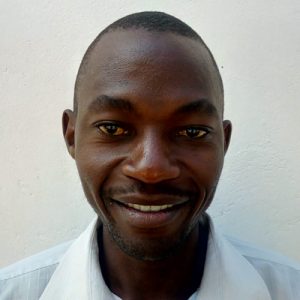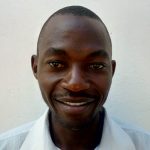"As a teacher, I cannot perform my duties satisfactorily because of the lack of water in school since I need to finish the syllabus, but students take a lot of time looking for water, and we miss that chance," said teacher David Oluoch.
Mr. Oluoch teaches at Indangalasia AC Primary School, where there is no water source on campus for the 1,140 students and 25 teachers and staff. Established in 1953 by the Anglican Church of Kenya, the school has seen a large rise in student population over the years yet no solution to their severe water crisis.
Each morning, students come to school carrying water from home along with their books. Then, during their short break, long break, and at games time, the students go to a spring in the village to fetch water - hardly the "break" the times are intended to provide. The students also go back home during lunchtime and come back to school carrying more water.
In all, students spend as much as half of their school day or more walking to and from water sources and school. Each walk from home and the spring tires students out, decreasing their focus when they finally get back to class. All of the missed class time adds up to poor academic results among students, to everyone's frustration. Delays at the spring also cause delays in the school's meal program, depending on the water students bring to school.
"We sometimes miss classes while at the spring looking for water. Therefore, it's not easy to revise and engage in group work. We also get tired going to the spring all the time," said pupil Metrine.
There are a lot of conflicts between the school and community over the students using the spring. At times, the community demands the school pays for students to use the spring, or the community refuses the students' access to the spring entirely. When the students are allowed to use the spring, they still have to wait for every community member to fetch water first, sometimes putting pupils at odds with their own families for water. Students' safety is a risk on their way to the spring as they have to cross a bustling road full of speeding motorbikes. Students also have to pass through a bush to reach the spring, which is further surrounded by sugarcane and maize plantations. These surroundings reduce visibility and, therefore, safety, putting the girls especially at risk of being attacked.
What We Can Do:
New Well
We conducted a hydrogeological survey at this school, and the results indicated the water table beneath it is an ideal candidate for a borehole well. Due to a borehole well's unique ability to tap into a safe, year-round water column, it will be poised to serve all of the water needs for this school's large population, even through the dry months.
The school will help collect the needed construction materials such as sand, rocks, and water for mixing cement. They will also provide housing and meals for the work team, in addition to providing local laborers. We will complement their materials by providing an expert team of artisans and drilling professionals, tools, hardware, and the hand-pump. Once finished, the school’s students and staff will use water from the well and staff for drinking, handwashing, cooking, cleaning, and much more.
The school and we strongly believe that all of these components will work together to improve standards at this school, which will help lead to better student academic performance and unlock the opportunity for these students to live better, healthier lives.
Handwashing Stations
The student health club will oversee the two new handwashing stations we will provide and ensure they are kept clean and in working condition. The club leaders will fill the handwashing stations with water daily and make sure they are always supplied with a cleaning agent such as soap or ash.
VIP Latrines
Two triple-door latrine blocks will be constructed with local materials that the school will help gather. Three doors will serve the girls, and three doors will serve the boys. These new latrines will have cement floors designed to be easy to use and clean. And with a rain tank right on school property, there should be enough water to keep them clean.
Training on Health, Hygiene, COVID-19, and More
We will hold a one-day intensive training session with students, teachers, and parents. This training will cover a wide range of topics, including COVID-19 symptoms, transmission routes, prevention; personal and environmental hygiene; and the operation and maintenance of the rain tank, latrines, and handwashing stations. There will be a special emphasis on handwashing.
Our team of facilitators will use various methods to train, including participatory hygiene and sanitation transformation and asset-based community development. We will initiate a student health club, which will prepare students to lead other pupils into healthy habits at school and home. We will also lead lectures, group discussions and provide illustrative handouts to teach health topics and promote good hygiene practices within the school, including handwashing and water treatment. We will then conduct a series of follow-up training before transitioning to our regularly scheduled support visits throughout the year.

 Borehole Well and Hand Pump
Borehole Well and Hand Pump
 Rehabilitation Project
Rehabilitation Project







































